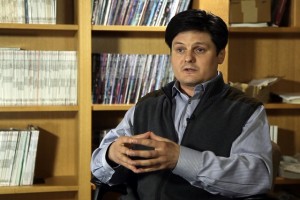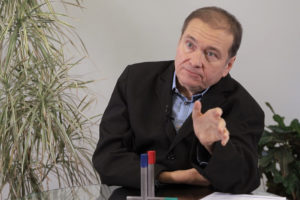Epigenetics Clocks
Biologist Vadim Gladyshev on aging, DNA, and the biological age of organs
Who was the longest-lived person on record? Why is it important to develop technologies that will allow us to expand our lifespan? Professor of Genetics at Harvard Medical School David Sinclair speaks on ethical considerations of longevity.
We already know a few genes that make so-called centenarian families live longer. These are families that typically live over 100, and their offspring as well. But what’s going to come down the line very soon is: with the ability to sequence all of these thousands of people who live long, is to find very quickly which are the genes that make them live longer and us live a normal lifespan. Now, that’s going to be very exciting just to learn that, but then what do we do with that information? Now, one approach is to make medicines, supplements, for example, that could make, for example, my pathways work just as well as Jeanne Calment’s, who lived to 122.
Let’s say, a family has Huntington’s disease, which is a dominant, horrible neurodegenerative disorder. We’ll be able to take out the stem cells from the ovary of the woman and grow millions of these in a dish. We can then use new genome editing technology that allows us to very precisely change just single bases in the genome, or whole stretches, or even shrink down regions of DNA that are toxic, that would allow the offspring of those parents to be healthy and get rid of genetic diseases out of the germline. And I think that that’s coming, there will be a day when parents can go in, talk to the genetic counselor and say: “We have these following problems that we do not want our children to have” and we will fix them. From there it’s just a short mental leap to being able to change any gene in your offspring.
We already know that there are changes in certain families that predispose to longevity, so changing the insulin receptor, which is a receptor that controls the response to insulin, can have a dramatic effect on health and longevity in families. So we’ll have to see, as the field will sequence thousands of genomes of long-lived people, we’ll see what the differences are. And then we’ll have to do some research to decide how many and which genes to try to manipulate to produce healthy long-lived cells and eventually long-lived people. As I was saying, I think that that’s necessary for us to eventually make it to other planets, to survive.

Biologist Vadim Gladyshev on aging, DNA, and the biological age of organs

Biologist Shamil Sunyaev on the sources of genetic variance, reconstructing population history, and disease ri...

Neuroscientist Onur Güntürkün on the ability of self-recognition, the mirror test and why pigeons are frighten...